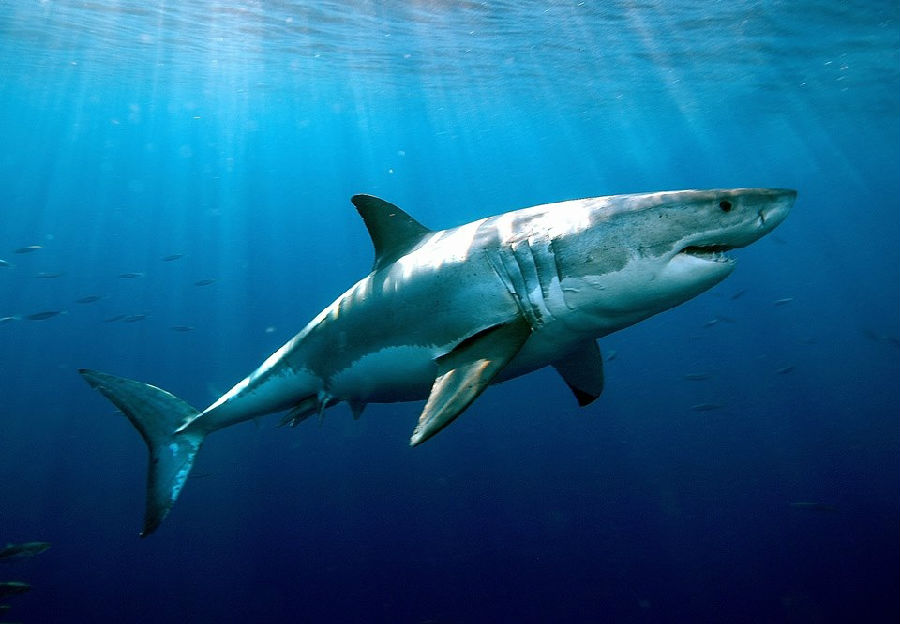Saving sharks is not so straightforward.
拯救鯊魚的道路沒有如此平坦
They're not just caught accidentally—
它們被捕捉并非偶然...
their fins are worth a fortune, thanks to an Oriental taste for shark-fin soup.
它們的鰭很值錢 全因東方人喜歡喝魚翅湯
Over 70 million sharks are killed every year,
每年有超過七千萬只鯊魚被捕殺
many in the South Pacific, where shark-finning is neither outlawed nor properly regulated.
在南太平洋的很多地方 割取鯊魚鰭要么并不違反法律 要么得不到有效管理
This is a big-eye thresher, a shark that's almost never been seen in the wild.
這是一條大眼長尾鯊 一種幾乎從未在野生環境被見到過的鯊魚
Shark-finning is a wasteful and often cruel practice,
切割鯊魚鰭是一種浪費 而且通常以殘忍的方式
and one that may ultimately disrupt the balance of life in the ocean,
可能最終打亂整個海洋生態的平衡
proving catastrophic for other marine life too.
并被證實對其他海洋生物同樣是 毀滅性的災難

So how can sharks be saved?
那如何拯救鯊魚?
In Bega Lagoon, in Fiji, the local people are proving that sharks can be more valuable alive than dead.
在斐濟的貝加湖 當地居民證明 一條活著的鯊魚比死掉的更有價值
Tourists will pay good money for an encounter with real, live sharks.
游客愿意為了與真實的活著的鯊魚 進行一次相會而花大錢
This is a community-owned reef and some of the money goes to the local villagers—
這是一片集體擁有的珊瑚礁 收入的一部分歸當地的村民
a big incentive not to kill the main attraction.
對禁止捕殺鯊魚有很大激勵
Fijians have long had an affinity with sharks.
斐濟人長久以來和鯊魚關系密切
Their ancestors worshipped a shark god, who they believed kept them safe from harm.
他們的祖先崇拜一位鯊魚神 他們相信他能保護他們免受傷害
They would feed sharks, not hunt them, and these divers continue the tradition.
他們會喂養鯊魚 而不捕殺它們 這些潛水者延續這一傳統











